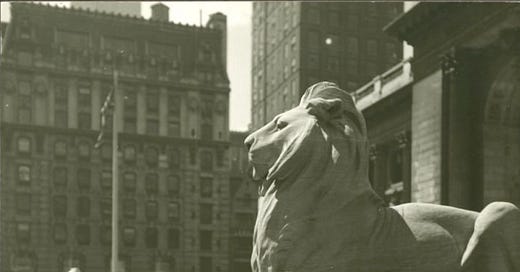From time to time, someone will write a history of the role played by a particular unit in a given conflict. In some cases, the author will be a member, whether past or present, of the organization in question. In others, he will be a professional writer, whether journalist, historian, or (in the case of Rudyard Kipling, poet) writing under contract with a commercial publisher. Likewise, they can be very short (like this 32-page pamphlet about the experience of a French transportation company in World War I) or (like Mr. Kipling’s The Irish Guards in the Great War) fill a full volume or two.
As a rule, locally printed unit histories, such as that of Company C of the 127th Infantry Regiment of the American Expeditionary Forces, were written, often on the eve of (or soon after) demobilization, for immediate distribution to members (or veterans) of a relatively small organization. Thus, few made their way into the shelves of bookshops or libraries. (The remarkably comprehensive collection of unit histories from the First World War made by the New York Public Library provides the exception that proves this rule.)
Commercial publishers like to sell lots of books. Thus, when putting out unit histories, they tended to focus on organizations, such as divisions and infantry regiments, that produced many veterans. (In the case of divisions, the number of veterans owed much to the size of the organization. In the case of infantry regiments, it often resulted from the number of men who spent time in such units before being wounded, captured, or transferred.) In short, the works most likely to make mention of an individual soldier are also those that will, more often than not, prove most difficult to find.
So much for the bad news. Now it’s time for the good.
Thanks to the proliferation of online repositories, it has never been easier to locate and, in many cases, download copies of unit histories. Here are the ones I have found most useful.
Archive.org (which is more extensive than Hathi, but not nearly as susceptible to keyword searching)
Gallica (for the historiques of French units, bien sûr)
The Combined Arms Research Library (at Fort Leavenworth, Kansas)
The Militär/Formationsgeschichte portal at GenWiki (natürlich auf Deutsch)
The collection of personal experience monographs at the Donovan Library (at Fort Moore, Georgia)1
Strictly speaking, the personal experience monographs, which were written by veterans of the Second World War while studying at the Infantry School, are not unit histories. However, as they deal with events that took place, often at the platoon and company level, within particular units, these accounts often contain information of value to people interested in such narratives.






As a unit historian, I find the greatest challenge is just the creation of a unit history. Often times, Unit Histories are an afterthought, created months if not years after the events recorded. Following, unit histories often end up being the recollection of a selection few.
In the US Army there is a formalized program for low level unit histories (DIV to BN), and though appointed historians are mandated, work load and ever changing mission preclude the creation of histories.
This is one your most valuable posts to me, personally, Bruce. I'm saving off separately as a research note. You've recommended these resources to me before.
C & I Companies, 3rd BN, 315th Regiment, 79th Div from 12 July 1944 to 30 November 1944 is what interests me specifically, as well as whatever tank destroyer units, medical, and comms units were with them on that trek across France. That was my mother's fiancé's unit. He was wounded in August and killed in November of that year. Even more specifically I'm interested in their actions and whereabouts, as well whatever German units they were opposing, on or about 20-25 August 1944, and from 22-30 November when he was killed. He came into France from England with replacement troops, on 12 July, and had an interview with a war correspondent named Erika Mann that day, while he was giving blood. I've tried to find any record of it but the BBC don't have them.